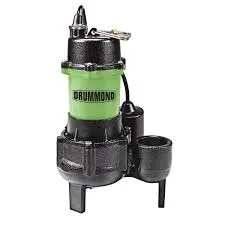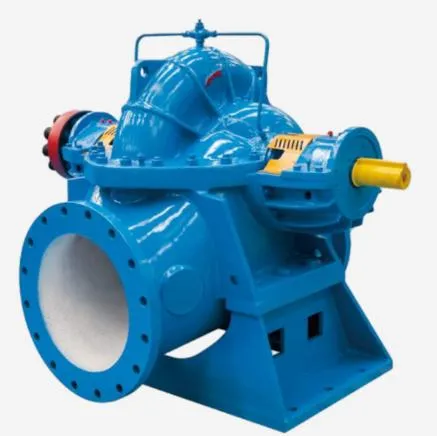TEL:
+86 13120555503
English
- Afrikaans
- Albanian
- Amharic
- Arabic
- Armenian
- Azerbaijani
- Basque
- Belarusian
- Bengali
- Bosnian
- Bulgarian
- Catalan
- Cebuano
- Corsican
- Croatian
- Czech
- Danish
- Dutch
- English
- Esperanto
- Estonian
- Finnish
- French
- Frisian
- Galician
- Georgian
- German
- Greek
- Gujarati
- Haitian Creole
- hausa
- hawaiian
- Hebrew
- Hindi
- Miao
- Hungarian
- Icelandic
- igbo
- Indonesian
- irish
- Italian
- Japanese
- Javanese
- Kannada
- kazakh
- Khmer
- Rwandese
- Korean
- Kurdish
- Kyrgyz
- Lao
- Latin
- Latvian
- Lithuanian
- Luxembourgish
- Macedonian
- Malgashi
- Malay
- Malayalam
- Maltese
- Maori
- Marathi
- Mongolian
- Myanmar
- Nepali
- Norwegian
- Norwegian
- Occitan
- Pashto
- Persian
- Polish
- Portuguese
- Punjabi
- Romanian
- Russian
- Samoan
- Scottish Gaelic
- Serbian
- Sesotho
- Shona
- Sindhi
- Sinhala
- Slovak
- Slovenian
- Somali
- Spanish
- Sundanese
- Swahili
- Swedish
- Tagalog
- Tajik
- Tamil
- Tatar
- Telugu
- Thai
- Turkish
- Turkmen
- Ukrainian
- Urdu
- Uighur
- Uzbek
- Vietnamese
- Welsh
- Bantu
- Yiddish
- Yoruba
- Zulu
Telephone: +86 13120555503
Email: frank@cypump.com
Feb . 14, 2025 18:16 Back to list
Self Priming Sewage Pump
The effectiveness and convenience of modern sewage pump systems have revolutionized how residential, commercial, and industrial waste management is approached. As a trusted expert in the field of sewage pump systems, I aim to provide detailed insights into their advantages, components, and considerations necessary for selecting the right system. This expertise seeks not only to guide potential users but also to underline the reliability and innovation characteristics that define industry-leading sewage pump solutions.
Investing in a high-quality sewage pump system also demands awareness of the latest industry standards and technological advancements. Automation and smart technology have been significant game-changers, offering features like remote monitoring and alarm systems that alert stakeholders in real-time to any system failures or necessary maintenance. These innovations enhance both the security and operational lifespan of the pump systems, providing a new level of control. The credibility of market-leading sewage pump systems is further affirmed by adherence to regional and international standards, like those outlined by the American National Standards Institute (ANSI) or the International Organization for Standardization (ISO). Compliance ensures systems are not only efficient but safe, conserving energy and minimizing their ecological footprint where possible. As a stakeholder in waste management, understanding the significant impact of sewage pump systems goes beyond installation. It encompasses regular maintenance facilitated by trained professionals who can diagnose problems early, suggest improvements, and ensure peak operational efficiency. Service contracts with certified experts not only boost the longevity of the systems but also add to the overall reliability and trustworthiness that consumers and businesses seek. The evolution of sewage pump systems testifies to a growing need for sustainable and innovative waste management solutions. From homes with specific needs to industrial estates requiring massive waste movement, the right sewage pump system is indispensable. The knowledge and experience distilled in this discourse aim to guide informed decisions and contribute to a cleaner, more sustainable environment—core values that define modern waste management and sewage technology.


Investing in a high-quality sewage pump system also demands awareness of the latest industry standards and technological advancements. Automation and smart technology have been significant game-changers, offering features like remote monitoring and alarm systems that alert stakeholders in real-time to any system failures or necessary maintenance. These innovations enhance both the security and operational lifespan of the pump systems, providing a new level of control. The credibility of market-leading sewage pump systems is further affirmed by adherence to regional and international standards, like those outlined by the American National Standards Institute (ANSI) or the International Organization for Standardization (ISO). Compliance ensures systems are not only efficient but safe, conserving energy and minimizing their ecological footprint where possible. As a stakeholder in waste management, understanding the significant impact of sewage pump systems goes beyond installation. It encompasses regular maintenance facilitated by trained professionals who can diagnose problems early, suggest improvements, and ensure peak operational efficiency. Service contracts with certified experts not only boost the longevity of the systems but also add to the overall reliability and trustworthiness that consumers and businesses seek. The evolution of sewage pump systems testifies to a growing need for sustainable and innovative waste management solutions. From homes with specific needs to industrial estates requiring massive waste movement, the right sewage pump system is indispensable. The knowledge and experience distilled in this discourse aim to guide informed decisions and contribute to a cleaner, more sustainable environment—core values that define modern waste management and sewage technology.
Share
Next:
Latest news
-
ISG Series Vertical Pipeline Pump - Chi Yuan Pumps Co., LTD.|Advanced Hydraulic Design&Energy-Efficient Solutions
NewsJul.30,2025
-
ISG Series Vertical Pipeline Pump - Chi Yuan Pumps Co., LTD.
NewsJul.30,2025
-
ISG Series Vertical Pipeline Pump - Chi Yuan Pumps Co., LTD.|energy-efficient fluid handling&industrial durability
NewsJul.30,2025
-
ISG Series Vertical Pipeline Pump - Chi Yuan Pumps | Advanced Engineering&Industrial Efficiency
NewsJul.30,2025
-
ISG Series Pipeline Pump - Chi Yuan Pumps | High Efficiency, Energy Saving
NewsJul.30,2025
-
ISG Series Vertical Pipeline Pump-Chi Yuan Pumps|High Efficiency&Reliable Performance
NewsJul.29,2025










